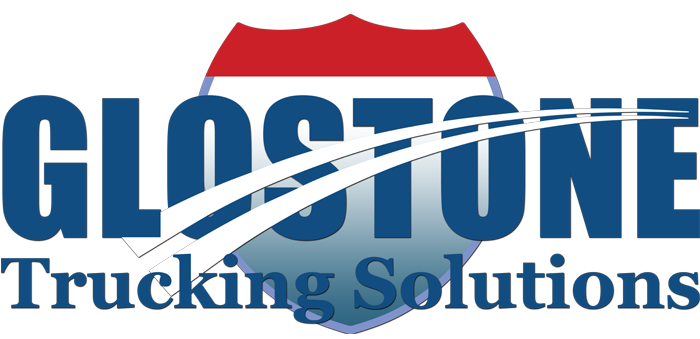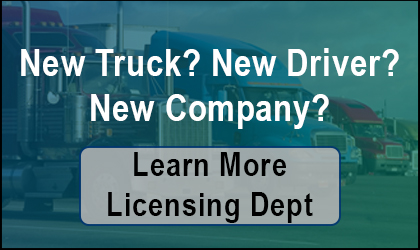Glostone Newsletter October 2014
posted in Blog, Newsletter by Brian Gray
Glostone Newsletter October 2014
ELD Compliance Questions
Electronic Logging Devices (ELD’s) can be a very viable answer to the time, expense and frustration involved with being in compliance with Hours of Service Regulations. Most ELD systems market themselves as being compliant with the Federal Motor Carrier Safety Regulations in regards to Hours of Service and driver logs. Many also say their data can be used for International Fuel Tax Agreement (IFTA) tax reporting purposes. Before you buy, make sure you have answers to a few key questions.
If you are going to use your EOBR for Hours of Service compliance, ask your vendor “does the unit meet the new FMCSA requirements for an ELD?.” If the answer is Yes, you may have a problem. The FMCSA is currently rewriting ELD requirements and have not yet released the final details. They are due to come out very soon. A “yes” answer to your question may mean your vendor really doesn’t understand, from a compliance standpoint, what he’s selling. The correct answer to your question should be “the unit meets today’s requirements and as soon as the new requirements come out, any modifications necessary will be made to stay in compliance.”
If you intend to use your ELD data for IFTA tax reporting, many more important questions must be asked. The correct answer can depend on the type of operation you run.
For IFTA, there is a big difference in the data needed to report IFTA taxes and the supporting data required to be maintained to prove the reporting data is correct. The data needed to report your IFTA taxes is simply the total distance in each jurisdiction of your fleet and the total fuel purchased in each jurisdiction by your fleet within a 3 month time period. Most ELD’s can supply the distance information for the tax computation but there are some that fail when it comes to being able to supply the supporting data required for IFTA compliance. Carrier’s buying ELD’s systems with the intent of using the data for IFTA purposes as well need to ask additional questions to make sure they remain in compliance. Questions such as:
- Can detailed trip reports be run by a starting and ending date for each unit?
- Will the report identify the origin and destination?
- Will the report identify the routes of travel?
- Can the beginning and ending odometer for each unit be produced for this time period?
- Will the report calculate total trip distance along with distance within each jurisdiction?
- Will this data be available for the next 4 years in case of an audit?
Under an IFTA audit, the auditor must be able to verify the accuracy of the equipment in calculating distance. An answer of “Yes” to each of these questions will allow the auditor what they need for their verification. An answer of “No” to any of these questions can put your company at risk at being out of compliance and cost you money during an audit. One other important question needs to be asked before you purchase your ELD . “How often does the ELD record the truck location through a GPS ping?” For a long haul operation, where a truck rarely leaves the interstate, a ping rate of every 20-30 minutes may be acceptable to accurately record the trucks distance in each jurisdiction for IFTA purposes. For short haul operations, where trucks spend much of their time on highways and streets, a ping rate of 1-5 minutes may be necessary to accurately record distance. Some carriers may have both long and short haul trucks. Buying an ELD with a ping rate set up for long haul may not be correct for the short haul units.An IFTA auditor will look at your operation, look at how often distance is recorded, and make a determination as to are you getting enough distance data to report accurately. In general, ping rates over every 15 minutes will be looked at very carefully by an auditor. It’s important to understand the differences in ELD compliance between the FMCSA’s Hours of Service requirements and IFTA tax reporting requirements. If you intend to use your ELD system for both of these compliance areas, asking these questions can help you make sure you have the right equipment for your operation.If you are looking for an ELD solution, be sure to check into EROAD (www.eroad.com). They are the only device tested by the State of Oregon and proven reliable for accurately reporting the Oregon Weight/Mile tax. Call us for more information!
2015 Licensing and Permit Renewals Begin
Renewing registrations, licenses, tax accounts, and many specialty permits is an annual headache carrier’s dread. Most 2015 renewals start in October and must be completed prior to December 31, 2014, including:
- Oregon Truck Registrations (including proof of HVUT payment)
- IFTA Licenses
- UCR Filings
- Oregon Weight/Tax Identifier Account
- New Mexico Mileage Tax Account
- And many individual Federal and State specialty permits like:
- Over Dimensional Permits
- HazMat Permits
The renewal season floods state agencies with added work. To control the workflow and provide timely service, these agencies open up the renewal process several months prior to the deadline. As the end of the year deadline looms, procrastinators are often faced with long lines and/or long waits to receive their new credentials.In Oregon, the state has closed 3 state permit offices which will result in more renewal work for fewer staff. Washington State has made similar budget cuts. To guarantee you don’t experience any down time or fines due to expired credentials, we recommend that you renew as soon as possible.Avoid the long lines and waits altogether by having Glostone process your renewals. We are experts in the renewal process, use the latest technology and have daily agency appointments to get your renewals processed timely and without the headache. Don’t wait until the last minute! Call us today!
Log Book Mastery Class- October 8th
Log book reviews are one of the easiest inspections an enforcement officer performs and, not surprisingly, log book violations are the number one cause of drivers being placed out of service. Understanding the log book rules is the first step in mastering this important area of compliance. On October 8th, 2014, Glostone Trucking Solutions is sponsoring an 8 hour class devoted to log book mastery. Certificates of completion will be awarded. Cost of the class includes lunch! For more information check out the Glostone Trucking Solutions website training page (www.glostone.com) or contact Jennifer at 503-607-1088.






